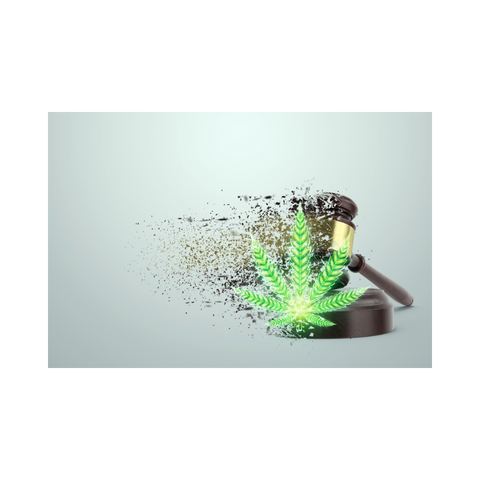Over the last two decades, the cannabis trade has metamorphosed from a hodgepodge of illicit black market dealings to mainstream businesses complete with quirky ads and hip well-lit storefronts in gentrified neighborhoods. Just last month, four more states (Arizona, New Jersey, South Dakota, and Montana) voted decisively to legalize recreational marijuana. Global cannabis sales for this year are nearing the 20 billion mark, and the House of Representatives just recently approved the MORE Act, which lays the groundwork for decriminalization at the federal level.
All of this signals a change in society’s collective view of cannabis, but as we continue down the path of progress, many of our fellow humans have been left behind.

The Human Cost of the War on Drugs

The United States is a country built on contradictions. An overwhelming majority of citizens support legalizing marijuana, cannabis stocks are skyrocketing, even your grandma is using CBD, and yet, in 2018, over 660,000 people were arrested for cannabis-related crimes. And that’s just in one year! In the last decade, some 15.7 million people have found themselves locked in a cage for consuming or selling a plant. Meanwhile, the legal cannabis industry reported 10.4 billion dollars in sales in 2018.
Our national anthem proudly purports that America is the land of the free, but how can that be the case in a country that spends a staggering $47 billion dollars annually to jail its inhabitants for acts that over two-thirds of the populace agree shouldn’t be illegal in the first place? How can America be the land of the free with legislators who value the interests of for-profit prison lobbyists over those of its own citizenry?
Those of us who have the privilege to live and work in areas of this country where cannabis is legal can not become complacent and forget about those who have been victimized by misguided policies. We can’t just assume that as green wave after green wave brings us closer to an end to prohibition that the incarcerated casualties of the War on Drugs will simply be released.
The Last Prisoner Project

That’s where the Last Prisoner Project (LPP) comes in. The LPP is a not for profit smorgasbord of business leaders, artists, and executives who have fully committed to ensuring the freedom of every last cannabis prisoner, which they go about in a number of ways. Take a quick glance at the Last Prisoner Project’s advisory board, and you’ll see a slew of celebrities, including Jim Belushi, Melissa Etheridge, and both Damian and Steven Marley.
The main goal of the LPP is to help those currently incarcerated navigate the criminal justice system and ultimately secure their release, but that’s just one piece. Part of what separates the LPP from other advocacy groups is their multifaceted understanding of what liberty really means.
Prison to Prosperity

Freedom isn’t just the unlocking of a prison cell. For ex-convicts, landing a job necessary to facilitate a smooth reentry into society can be nearly impossible. This lack of opportunity is a massive contributor to the, frankly insane, recidivism rates in this country. Within six years, nearly 80% of formerly incarcerated people will find themselves back on the other side of steel bars. That’s why the Last Prisoner Project created its Prison to Prosperity reentry program, which is designed to help those leaving lockup find meaningful employment in the legal cannabis industry, as well as provide scholarship opportunities to those individuals.
Policy and Advocacy
The Last Prisoner Project also advocates for prison reform on a more macro level. They conduct and publish research to advise lawmakers who draft policies regarding policing and criminal justice. The LPP also works closely with state and federal legislators to develop prison reform bills.
How to Support the Last Prisoner Project
This past year we’ve witnessed Covid-19 ravage this country. Some of the nation’s most vulnerable people are unable to quarantine at home since they’re locked in poorly ventilated cells with thousands of other people. Now more than ever, those imprisoned for cannabis crimes need our help.
The LPP has worked tirelessly to protect those at-risk men and women by securing PPE for prisoners, as well as providing pro bono legal counsel for those seeking compassionate release. But they can’t do it on their own, they need your help and financial support to continue fighting for justice. This holiday season, consider giving back to your community, especially if you benefit from the legal cannabis industry, by donating to the Last Prisoners Project.
E1011 Labs is proud to support the Last Prisoner Project by allowing shoppers to round up their purchase to the nearest dollar at check out and donate the difference to fighting social injustice.



